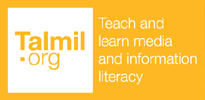

Montenegro
-

RSF World Press Freedom Index 2021 (position)
104of 180
-

RSF World Press Freedom Index 2021 (score)
34.33
-

Media literacy (ranking in Europe)
32of 35
-

Media literacy (score)
26of 100
-

IREX vibrant barometer (score)
21of 40
Media landscape
A large number of media in Montenegro face problems of financial sustainability and political pressures, and trends of decline in the quality of professional standards, vulnerability to hate speech, disinformation and propaganda are noticeable (1). A significant source of disinformation and propaganda campaigns are the media from the same speaking area, primarily tabloids from Serbia (2), whose printed editions are being sold throughout Montenegro. Political pressures are extremely strong, which is also evident in the public service of Montenegro (RTCG), whose transition from a state media organization to a true public service broadcaster has not been completed yet (3). The best-developed national media outlets show signs of potential for investigative journalism and specialized reporting as well (4), and in this field the Digital Forensic Center, the Center for Investigative Journalism and Raskrinkavanje stand out.
Journalists
Among the countries of the Western Balkans, Montenegro has the lowest position on the global list of media freedoms of Reporters Without Borders. The report states that the authorities continue to harass the media and professional journalists while the main cases of violence against journalists remain unpunished (5). Freedom House also states that some of the most prominent physical attacks on investigative reporters remain unresolved, while journalists – in general – often experience self-censor to avoid threats, political pressure, costly defamation suits, or job loss (6).
Audience and media literacy
Although the state of media literacy in Montenegro is unfavorable, improvements can be expected in the medium and long term, as Montenegro has implemented some of the pioneering efforts in the region in the field of introducing media literacy in the education system. According to IPSOS, the majority of citizens claim they trust the media. The majority of them follow television news daily and believe that this is the medium releasing correct and complete information (7).
Medias outlets

National media
Raskrinkavanje
Raskrinkavanje.me is a platform of the Center for Democratic Transition (CDT) and its primary goals are to counter media manipulation, increase the quality of media content, media literacy of readers and respect for professional standards on the media scene of Montenegro. Raskrinkavanje is a verified member of the International Fact-Checking Network (IFCN).

Regional media
Agence France Presse (AFP)
Since 2017, AFP has been developing a fact checking service, which reviews news casted in the media and social networks. In the Western Balkans, AFP currently fact checks news in Serbia, Montenegro and Bosnia-Herzegovina, as well as on Facebook and other social media. In 2021, the press agency launched a worldwide public campaign on media literacy and basic fact checking tools.






